
The Future of Career Education
By Wallace K. Pond, Ph.D.
Unfortunately, there is no way around some critical, structural challenges currently affecting higher education in general and career education in particular.
For example, as an industry, higher ed has been in decline for a decade – and that was before the COVID pandemic – which has caused the single worst year-over-year enrollment decline of the last ten years.
Career colleges were hit hardest, early in the decline, with private nonprofits and community colleges now suffering substantial contraction. Between the late 2000s and 2018, for-profit institutions lost over one million students. Between that time and fall, 2020, traditional, nonprofit institutions have seen declines in excess of two million enrollments. Fortunately, however, 2020 saw 4% enrollment increases for four-year proprietary institutions, primarily in online programs.
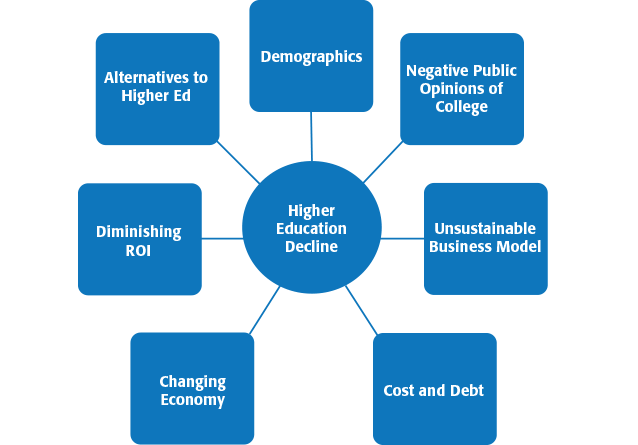 There are multiple factors, including demographics, public perceptions, cost and debt, the broader economy, and a growing number of alternatives to credit bearing, degree-granting higher education that will continue to put downward pressure on enrollment and revenue in degree-granting institutions. Demographics alone will decrease the potential freshman population by 20% or more over the next 20 years at least!
There are multiple factors, including demographics, public perceptions, cost and debt, the broader economy, and a growing number of alternatives to credit bearing, degree-granting higher education that will continue to put downward pressure on enrollment and revenue in degree-granting institutions. Demographics alone will decrease the potential freshman population by 20% or more over the next 20 years at least!
However, and this is very important, post-secondary education, i.e., every educational opportunity after high school, is growing, and will continue to grow for the foreseeable future. This is particularly so with non-credit bearing, non-degree options that are delivered by non-accredited entities, or in partnership with accredited entities, and by industry itself in a direct-to-consumer/employee model. This situation is actually good news for career colleges, but only if they are able to transform themselves and do it quickly.
What is the advantage for career schools? First of all, almost all of the growth is in skills and career-related training, which is in the DNA of career colleges. Secondly, career colleges have stronger (though still inadequate) ties to industry than most traditional nonprofit colleges. If career colleges can pivot to serving industry as a primary customer, providing the things that matter to employers such as customized, relevant content (developed by industry and approved by faculty), delivered “just in time,” for both entry-level and on-the-job training, with a financial model that limits or eliminates student debt, then those schools can not only survive but grow their post-secondary education business. However, the growth side of the operation will look very different than the traditional, degree granting side of the house.
The future of career education
Although traditional higher education will continue to shrink in terms of both enrollment and revenue for the foreseeable future, there will be significant growth in career/skills-based education, the lion’s share of which will likely happen within industry-provided programs rather than in career colleges themselves.
Other players that operate “boot camps” and short, certificate programs for limited cost will also benefit as students recognize better ROI than in college-based programs.
Unfortunately, even with growth in skills-based training, there will be fewer career (and traditional) colleges as institutions continue to close, and it is likely that there will be some blurring of the lines between conventional degree-granting career schools and those that offer non-credit, non-degree skills training that typically lead to industry certifications. Career education institutions that are good at blurring the lines will benefit. In other words, going forward, in most cases, viability for career colleges will require a combination of “traditional” credit bearing, degree-granting programs with other non-credit, non-degree (and non-Title IV) offerings, which may be offered by the school or in collaboration with industry partners.
Other realities for the future likely include:
- The de-monetization of post-secondary education by very low-cost providers
- Impediments to innovation from the regulatory triad and institutional leadership
- Less dependence on Title IV as a funding mechanism
- Alternative tuition funding models (including subscriptions, third-party payers, and post-graduation revenue sharing)
- Intense, retail competition across all sectors of higher education
- More jobs and careers accessible without college degrees of any kind
- A shift to a focus on student ROI and employment outcomes rather than accreditation or other anachronistic imprimaturs of quality
- A move away from very old and inflexible constructs such as the academic calendar, contact hours, and traditional grades, in favor of smaller modules of continuous scheduling, mastery, and certificates based on competency exams
- More remotely delivered instruction and services even when the pandemic is “over”
Career colleges that survive and thrive will be schools:
- Whose degree offerings are skewed toward careers that require a degree and licensure and whose other programs can be delivered quickly, with industry recognized skills and credentials
- That build strong, supportive relationships with students
- That graduate students with limited or no student debt
- That can innovate and execute quickly
- That have very deep and integrated industry partnerships
- That offer a low friction, positive customer experience
- That are masters of educational and service technology
- That cannot just change, but transform
- That develop diverse revenue streams
- That have game-changing leadership (executive and board level)
- That can manage constant change as the status quo
- That have flexible expense/overhead models
We also know what organizational and functional competencies will be necessary moving into the future, and in fact are really valuable in the present!
| Organizational Competencies (Value Added) | Functional Competencies (Price of Entry) |
| Innovation | Student Acquisition |
| Change Management | Student Funding |
| Finance | Student Retention |
| Business Development | Curriculum & Instruction |
| Product Strategy | Compliance |
| Customer Service | Graduate Employment |
| Educational Technology |
In short, institutions that find a way to offer shorter, cheaper, high quality programs and credentials that lead directly to good employment opportunities, will be in high demand over the next several years as we work our way out of an economic depression and transition to the next normal in post-secondary education. The fortunate reality is that the need for post-secondary skills based and professional training is growing; it just isn’t going to be through credit-bearing degree programs, which means that in order for career colleges to survive and thrive, they will have to reinvent much of what they do. The majority of the student market will continue to pay reasonable fees for a wide variety of options, but only if it is a high-quality experience that leads to a fair return on their investment of time and money. They will no longer pay exorbitant prices for mediocrity or for dubious outcomes.
In summary, a way to think about the future is that colleges of all kinds will no longer be able to get by with incremental changes or tweaks to process.
As I noted in a previous article, higher education simply does not have a future as we know it, because the external environment has changed so dramatically and so forcefully, that there is no longer a student market for large swaths of what we call higher education. Of course, due to a variety of advantages, some number of institutions in every sector will continue to operate well into the future doing what they’ve always done, but the disruption currently in play will affect thousands of the 5,800 or so Title IV eligible institutions in the U.S. today, resulting in a 2030 higher ed industry that will probably be about 40% smaller than it was in 2010. Any institution that is currently at risk (and that’s about 50% of all colleges just speaking of liquidity), will have to be prepared to engage in transformational change that may result in a totally new institution. In effect, such schools have to fear change less than they fear failure and be willing to challenge even the most sacred assumptions of their past.
DR. POND, Founder and CEO at Idea Pathway, LLC, has been a mission-driven educator and leader for over 30 years. For the last 20 years, Wallace has been a senior leader in higher education, holding both campus and system-level positions overseeing single and large, multi-campus and online institutions of higher education in the U.S. and internationally. He has served as chancellor, president, COO, CEO, and CAO (Chief Academic Officer), bringing exceptional value as a strategic-servant leader through extensive experience and acumen in strategic planning, change management, organizational design and development, P&L, human capital development, innovation, new programs, and deep operational expertise among other areas of impact.
Wallace began his career as a high school teacher and adjunct professor, and spent six years in the elementary and secondary classroom working primarily with at-risk youth. He was also a public school administrator and spent another six years as a full-time professor and administrator in the not-for-profit higher education sector, working in both on-campus and online education, bringing education to underserved students. Additionally, Wallace has over 15 years of executive, private sector experience, creating a unique and powerful combination of mission-driven and business focused leadership and insights.
Dr. Pond has lived, worked, and studied in North America, Latin America, the Caribbean, Europe, Asia, and the Middle East. He has presented nationally and internationally and is the author of numerous articles and the books, “The Lights Are On, Is Anybody Home? Education in America” and “Leadership in the Real World.”
Wallace, a licensed pilot, has a BA in Spanish, an M.Ed. in Human Services and Human Resource Education, and a Ph.D. in Education.
Contact Information: Wallace K. Pond, Ph.D. // Founder // Idea Pathway, LLC // 719-344-8195 // wkp@wallacekpond.com // www.WallaceKPond.com

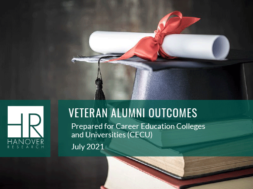
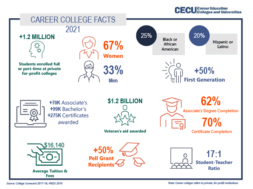

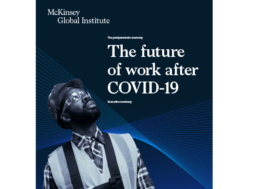
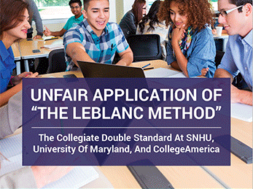






Comment(1)